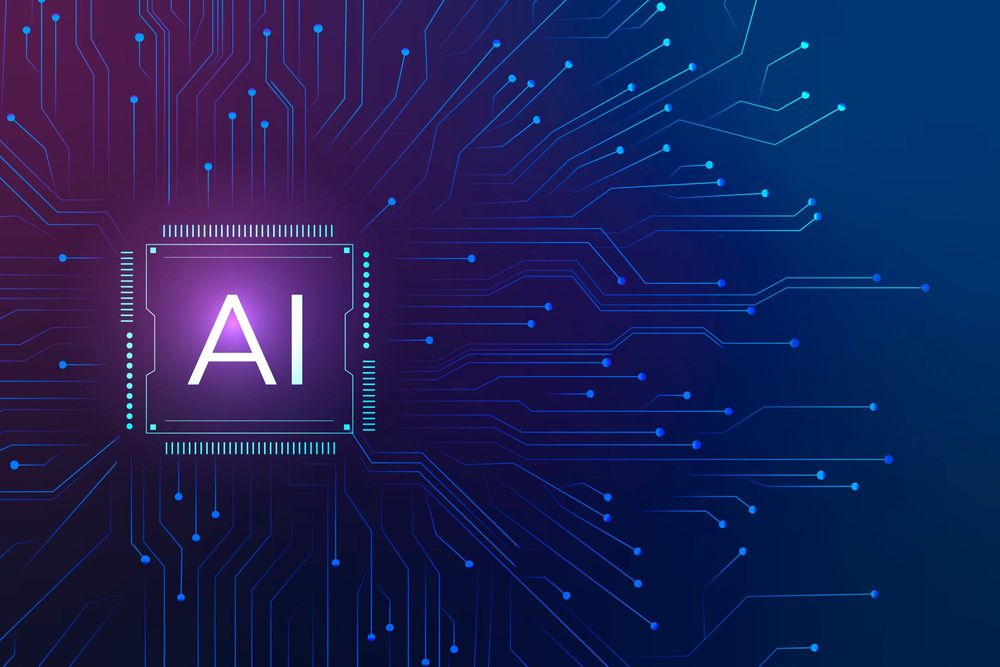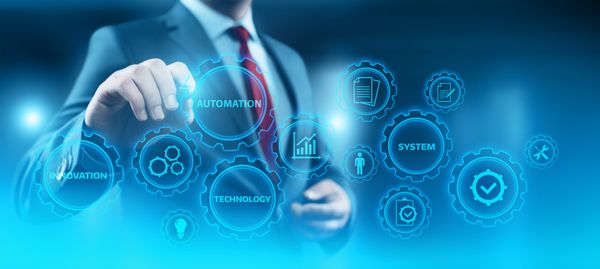The Future of Artificial Intelligence
It has been well established that Artificial Intelligence (AI) has contributed to increased productivity, efficiency, and development of society. With decades of development and scores of changes within the implementation, AI has become the overnight sensation that every company wants to lay their hands on. AI involves the use of machines; therefore, companies in different sectors are making efforts to produce and develop several mechanisms that can take the place of humans. The application of Artificial Intelligence takes precedence over manual intervention, hence technology has become the thing of the future [1].
As AI takes over the usual mundane chores, it will soon surpass human knowledge and make decisions we were never capable of. In the coming years, this will result in paradigm shifts, which will only translate into better success rates for companies making use of these smart, evolving technologies [2].
The effect of AI on the evolution of technology cannot be emphasized enough. Instead of manual reasoning and tasks, machine learning algorithms will provide high-quality performance effortlessly. The adoption of AI in numerous areas has greatly benefited organizational development; supporting their deployment, fraudulent actions have been predicted and avoided at the same time [3].
Now It’s possible to solve any kind of problem with well-developed deep learning models with machine learning algorithms [4] such as
- Convolutional Neural Networks (CNNs)
- Long Short Term Memory Networks (LSTMs)
- Recurrent Neural Networks (RNNs)
- Generative Adversarial Networks (GANs)
- Radial Basis Function Networks (RBFNs)
- Multilayer Perceptrons (MLPs)
- Self Organizing Maps (SOMs)
- Deep Belief Networks (DBNs)
- Restricted Boltzmann Machines( RBMs)
- Autoencoders (AEs)
- The advanced technology in AI/ML reduces the cost of time, the complexity of algorithms and hence reduces the overall computational complexity [5].
- Slowly and steadily, these technologies will become an integral part of our lives, and become inseparable from our day-to-day jobs. What is yet to be seen is how these technologies can reduce the interdependency between humans and machines, and recreate the evolution for a better tomorrow.
What is Artificial Intelligence?
Artificial intelligence (AI) is the ability of a digital computer or computer-controlled robot to execute activities often associated with intelligent individuals. The term is widely used to refer to the endeavour of developing solutions that have human-like cognitive functions, such as the ability to reason, discover meaning, generalise, or learn from prior experience. Expert systems, NLP, speech recognition, and machine vision are some specific applications of AI. It is a cutting-edge area of computer science that is destined to govern a number of growing industries, including big data, robots, and the Internet of Things using machine learning and deep learning algorithms. In the upcoming years, it will keep on innovating in the field of technology. Machines that help humans with intelligence are not just in sci-fi movies but also in the real world. In short, AI has evolved from science fiction to reality in just a few years. Now, We live in artificial intelligence (AI) world, which was previously only fiction for a while [6].
Major fields of artificial intelligence in future
1. Health Care Industries
In the relatively AI-based sector of healthcare, diseases are more quickly and reliably diagnosed, medication discovery is sped up and streamlined, virtual nursing assistants monitor patients, and big data analysis helps to provide a more customized patient experience. The influence of AI on the healthcare industry will be immense; As it has been designed to deliver applications that can remind you to take your medicines on a daily basis. Furthermore, rather than employing the human mind to reason and portray, AI has been installed to do all forms of logical reasoning [7].
2. AI in Education
Textbooks are digitized with the use of AI. Also, early-stage virtual tutors assist human teachers, and face analysis gauges students' emotions to help detect who is struggling or bored and better adapt the experience to their unique requirements [8].
3. AI in Finance
Technology does not always have to be tangible; it may also be abstract. As a result, this abstraction might impact the financial industry. Artificial intelligence is used to identify fraud, enhance customer representation, recognise consumers, and respond to their requirements. The daily transactions in any banking or financial system are now calculated by machines, not by humans, who used to do accountancy [9].
4. AI in Military
Additionally, AI has the potential for defensive military applications and can be trained to detect, identify, and destroy illegal software. [10] Operationally, AI can allow military teams to retain or improve warfighting capability without having to add or upskill people's strengths, both of which take time and additional ongoing expenses that armies may not be able to or willing to spare [10].
5. Cyber security
Each company prioritizes cyber security to ensure data protection. The following developments are envisioned as a result of AI and cyber security:
- Security concerns can be tracked using AI techniques.
- locating the source of cyberattacks using natural language processing.
- RPA bots are used to automate operations and processes that follow rules.
However, although being an excellent technology, attackers may exploit it as a threat. They can employ automated attacks that would be unable to fight in an unethical manner by leveraging AI [11].
6. E-commerce
In the near future, artificial intelligence will be crucial to the e-commerce industry. It will have a favourable effect on every facet of the e-commerce industry, from user experience to product marketing and delivery. We may expect e-commerce with automated warehousing and inventory, shopper personalisation, and the employment of chatbots in future [12].
7. Employment
The application of artificial intelligence in the modern workplace has made finding a job straightforward for both job seekers and organizations. Artificial intelligence (AI) is already being employed in the job market, where tight regulations and algorithms automatically reject a CV from an applicant if it does not meet the requirements of the organization. In the future, it is hoped that most AI-enabled apps would control the hiring process, from marking written interviews to conducting phone interviews. Various AI programmes, like Rezi, Jobseeker, etc., are assisting job searchers in creating outstanding resumes and locating the finest positions that match their talents. Aside from the aforementioned industries, AI has a bright future in manufacturing, banking & finance, entertainment, etc, [13].
5 Things to expect in the next 10 years
There has never been a better moment to work in the artificial intelligence industry than right now. AI has reached a tipping point and is ready to revolutionize every business. A lot has already been published on certain AI applications. With five audacious predictions and immersion in the area, I take a moment in this piece to analyze how artificial intelligence is set to fundamentally reshape larger swaths of our economy and society over the next ten years.
AI and ML will transform the scientific method
Advance science is costly and time-consuming for extensive studies or development. There has been significant, well-founded concern about the deceleration of scientific advancement in recent decades. It's possible that the era of great scientific discovery is finished. We may anticipate orders of magnitude improvements in what can be done with AI and machine intelligence. Humans are limited in the range of concepts they can computationally investigate. Humans and computers can discuss a wider range of concepts. Additionally, a considerably wider range of concepts may be successfully handled by people working with computers and AI. With the help of AI, it is now possible to computationally analyze massive data sets and identify complicated relationships and patterns. AI is expected to revolutionize scientific research, announcing a new era of scientific discovery by enhancing human intellect and revolutionizing the research method [14].
AI will become a pillar of foreign policy
The AI revolution is considered to be more powerful than the industrial revolution since it has infiltrated people's personal life as well as impacted industries. However, the industrial revolution appears to have a significant influence on international relations and commerce, which raised the economic productivity in western nations like the United States and the United Kingdom. We're likely to see significant government investment in AI. Secretary of Defense Lloyd J. Austin III has openly endorsed the importance of partnering with innovative AI technology companies to maintain and strengthen global U.S. competitiveness. The National Security Commission on Artificial Intelligence has also issued specific recommendations, stating that the United States government must significantly accelerate AI innovation. AI would be essential to the United States' continued economic strength and geopolitical leadership [15].
AI will enable next-gen consumer experiences
The metaverse and cryptocurrency are two examples of next-generation consumer experiences that have generated a lot of attention. AI will be essential in making these experiences and more like them possible. Due to the lack of necessary awareness of humans to overlay digital things on actual physical surroundings or to comprehend the spectrum of human activities and their related impacts in a metaverse environment, the metaverse is intrinsically an AI challenge. Our lives are increasingly being lived at the convergence of the worlds of information and atoms. In a digital environment, AI systems may be able to learn far more quickly (e.g., virtual driving to train autonomous vehicles). These are natural catalysts for AI to bridge the feedback loops between the digital and physical realms. For instance, the fundamental purpose of blockchain, cryptocurrencies, and distributed finance is to introduce frictionless capitalism into the system. Distributed apps and smart contracts, however, will need to have a better understanding of how financial operations interact with the actual world; this is an AI and ML challenge [16].
Addressing the climate crisis will require AI
In order to mitigate the socioeconomic threats caused by climate change, society has a lot of work to do. Policies for carbon pricing are still in their infancy and their efficacy is debatable. AI is necessary for many promising emerging concepts to be practical. One potential alternative strategy incorporates artificial intelligence-powered prediction markets that can link policy to effect, using a holistic perspective of environmental knowledge and interdependence. This would most likely be driven by digital "twin Earth" models, which would need to process and analyze amazing volumes of real-time data in order to identify minor anomalies that are imperceptible to the human eye. Without AI-powered risk modelling, the capacity to predict adverse effects, and the capability to forecast unintended consequences, other innovative technologies such as carbon dioxide harvesting cannot succeed [17].
AI will enable truly personalized medicine
Personalized medicine has been a dream since the human genome was decoded. Tragically, it nevertheless remains an aspiration. The creation of personalised treatments for patients is an interesting use of AI. In addition, AI has the ability to synthesize and forecast personalized treatment modalities in near real-time without having to conduct medical studies. In other words, AI is ideally qualified to build and assess "digital twin" rubrics of personal biology and is able to do so in the context of the communities a person lives in. The complexity of the human body is astounding, yet our knowledge of how medications function is shockingly inadequate (paywall). Without AI, it is hard to make sense of the enormous information from a human's physiology, much alone the influences of environment, lifestyle, and food on a person's health outcomes. AI solutions have the potential to significantly reduce chronic health disparities in addition to advancing the state of the art in healthcare [18].
Conclusion
Applications of artificial intelligence are expected to significantly impact our culture and economy during the next 10 years. The most promising time for technology innovation and value generation in the foreseeable future is presently in its early stages, according to a number of authoritative experts. Artificial intelligence's influence on technological advancement will improve analytical marketing and the experiences of both consumers and producers. Intelligent technology can be used to imitate physical labour in place of employees engaged in very dangerous employment. When artificial intelligence is employed, it achieves nearly perfect precision, efficiency, and error-free performance. Artificial intelligence has had an influence on many areas of technological advancement, and the world has already experienced its beneficial actuality. It has been statistically demonstrated that in the coming years, AI will grow rapidly and have a profound influence on all social norms.
References:
- Goralski, Margaret A., and Tay Keong Tan. "Artificial intelligence and sustainable development." The International Journal of Management Education 18, no. 1 (2020): 100330.
- Ahn, Michael J., and Yu-Che Chen. "Digital transformation toward AI-augmented public administration: The perception of government employees and the willingness to use AI in government." Government Information Quarterly 39, no. 2 (2022): 101664.
- Laato, Samuli, Matti Mäntymäki, A. K. M. Islam, Sami Hyrynsalmi, and Teemu Birkstedt. "Trends and Trajectories in the Software Industry: implications for the future of work." Information Systems Frontiers (2022): 1-16.
- Tyagi, Amit Kumar, and Poonam Chahal. "Artificial intelligence and machine learning algorithms." In Research Anthology on Machine Learning Techniques, Methods, and Applications, pp. 421-446. IGI Global, 2022.
- Hua, Haochen, Yutong Li, Tonghe Wang, Nanqing Dong, Wei Li, and Junwei Cao. "Edge Computing with Artificial Intelligence: A Machine Learning Perspective." ACM Computing Surveys (CSUR) (2022).
- Feuerriegel, S., Shrestha, Y.R., von Krogh, G. and Zhang, C., 2022. Bringing artificial intelligence to business management. Nature Machine Intelligence, 4(7), pp.611-613.
- Nair, Akarsh K., EbinDeni Raj, and Jayakrushna Sahoo. "An Overview of Artificial Intelligence for Advanced Healthcare Systems." Digital Health Transformation with Blockchain and Artificial Intelligence (2022): 141-160.
- Nazaretsky, Tanya, Moriah Ariely, Mutlu Cukurova, and Giora Alexandron. "Teachers' trust in AI‐powered educational technology and a professional development program to improve it." British Journal of Educational Technology (2022)
- Cao, Longbing. "AI in Finance: Challenges, Techniques, and Opportunities." ACM Computing Surveys (CSUR) 55, no. 3 (2022): 1-38.
- Maathuis, Clara. "On Explainable AI Solutions for Targeting in Cyber Military Operations." In International Conference on Cyber Warfare and Security, vol. 17, no. 1, pp. 166-175. 2022.
- Bonfanti, Matteo E. "Artificial Intelligence and the Offence-Defence Balance in Cyber Security." Cyber Security: Socio-Technological Uncertainty and Political Fragmentation. London: Routledge (2022): 64-79.
- von Zahn, Moritz, Stefan Feuerriegel, and Niklas Kuehl. "The cost of fairness in AI: Evidence from e-commerce." Business & information systems engineering 64, no. 3 (2022): 335-348.
- Shao, Shuai, Zhanzhong Shi, and Yirong Shi. "Impact of AI on employment in the manufacturing industry." International Journal of Financial Engineering (2022): 2141013.
- Mariani, Marcello M., Rodrigo Perez‐Vega, and Jochen Wirtz. "AI in marketing, consumer research and psychology: a systematic literature review and research agenda." Psychology & Marketing 39, no. 4 (2022): 755-776.
- Dolan, Chris J. "Containment, Engagement, and Continuity: China and the Evolution of obama’s Foreign Policy Toward the Asia–Pacific." In Achievements and Legacy of the Obama Presidency, pp. 161-176. Palgrave Macmillan, Cham, 2022.
- Arathi, S. "Customer Experience and Satisfaction in Digital Insurance." (2022).
- Cheong, So‐Min, Kris Sankaran, and Hamsa Bastani. "Artificial intelligence for climate change adaptation." Wiley Interdisciplinary Reviews: Data Mining and Knowledge Discovery (2022): e1459.
- You, Kui, Peter Wang, and Dean Ho. "N-of-1 Healthcare: Challenges and Prospects for the Future of Personalized Medicine." Frontiers in Digital Health 4 (2022).




